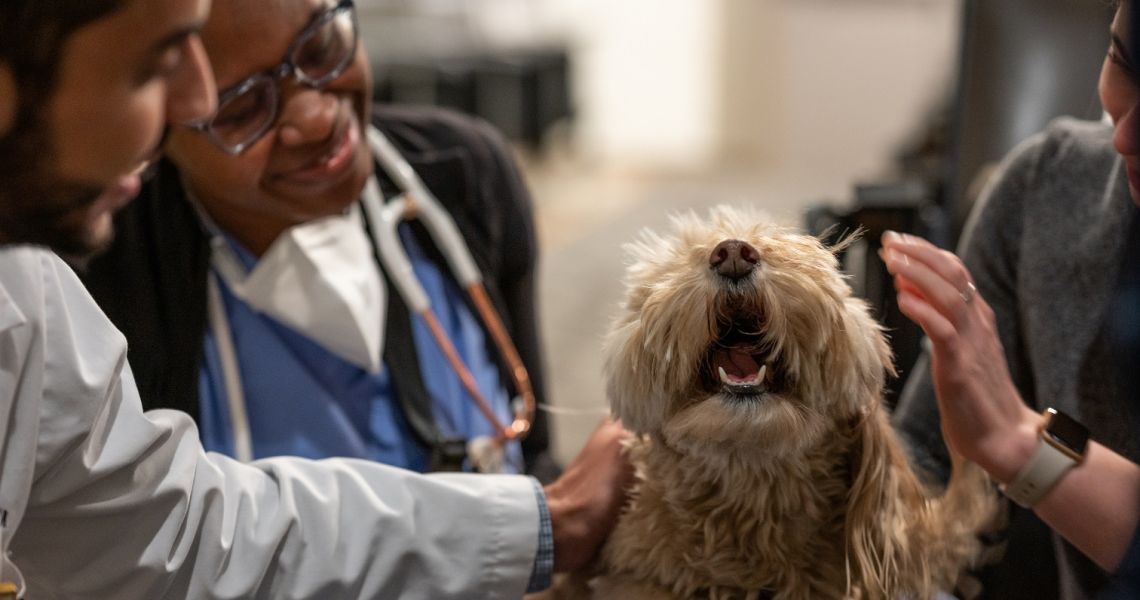No one enters the medical field because it’s easy. But the COVID-19 pandemic and its ongoing challenges have made the past few years an exceptionally hard time for care professionals, with nearly two-thirds of doctors experiencing at least one symptom of burnout and 100,000 nurses leaving the workforce due to pandemic-related stress.
Community members in the George Washington University’s medical enterprise are no exception. Fortunately, the School of Medicine and Health Sciences’ Resiliency and Well-Being Center (RWC) has some powerful (and adorable) weapons in the fight against burnout. Their names are Wilma, Charlie and Oliver Toast—and they are trained therapy dogs with local nonprofit People Animals Love (PAL).
Among its other services, the RWC offers regular sessions during which medical students, residents and others can forget their responsibilities and hang out with them and other trained puppies.
“Animal-assisted therapy has been shown to result in lower self-reported stress, anxiety, and loneliness levels and increased quality of life scores in college students,” said Viktoriya Karakcheyeva, the RWC’s director of behavioral health. “Dogs offer unconditional love, emotional support and excellent companionships to help students in distress. Our students and trainees greatly value these experiences.”
It's not always easy for health care providers to care for themselves because their jobs can be so demanding, Karakcheyeva said. But it’s important that they do so, whether through pet therapy or another healing modality, of which the RWC has many options, including individual counseling, lifestyle modification groups, mind-body practices, wellness workshops and lectures.
“I am a big believer that you need to exercise a healthy dose of being selfish—you gotta put on your oxygen mask first so you can help others,” she said. “In healthcare each of us becomes an instrument of healing for our patients, so if this instrument is ‘off tune’ it can create a lot of issues that could negatively impact both provider and patient. That's why programs that focus on all aspects of whole health, including self-care practices, is a mission that the Resiliency and Well-being Center is proud to deliver to the GW medical enterprise.”
